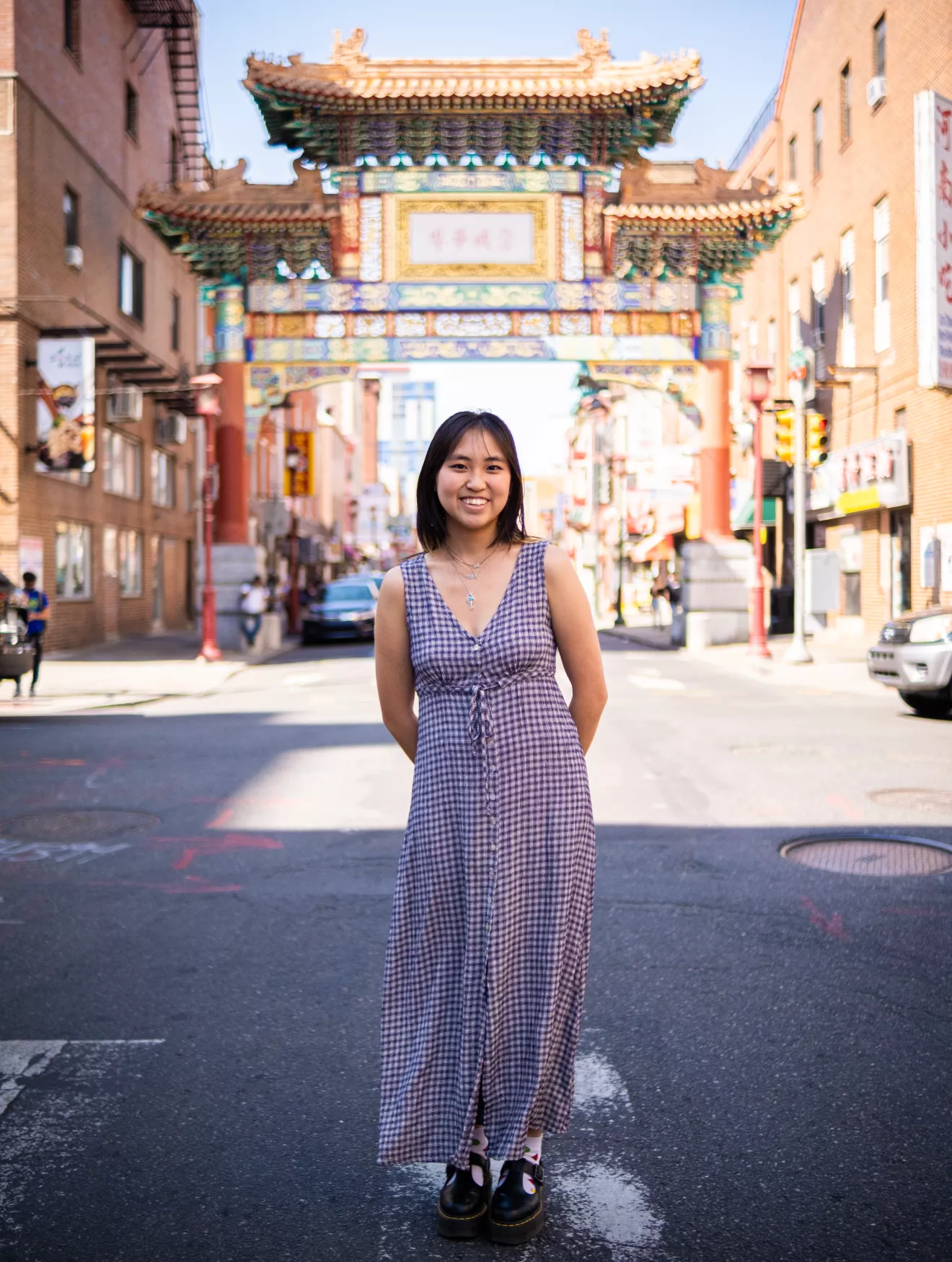Kaia Chau '24 Awarded for Fighting Against New Arena in Philadelphia's Chinatown

Community activism runs in the family for Kaia Chau ‘24 who was recently awarded the Emerging Leaders Award by the Bread & Roses Community Fund. The award recognizes her work co-founding Students for the Preservation of Chinatown (SPOC), a student group fighting against the development of a proposed new 76ers arena outside Philadelphia’s Chinatown.
Kaia is a Philadelphia native and attended school in Chinatown throughout her childhood. Kaia's mother has played an active role in advocating for their community and organized against similar large developments, including proposals for a new stadium and casino in 2000 and 2008.
“With the rise of anti-Asian hate crimes since 2020, I feel like Chinatown has especially been important to me, and every Asian American that lives in Philly. If the arena were to be built here, it would be really hard for people to get into Chinatown and a lot of businesses wouldn’t be able to survive,” says Kaia.
When it was announced that a new sports arena was being proposed to be built a block away from Chinatown, Kaia’s mother met up again with the other organizers from the previous fights and suggested that Kaia also join to bring the perspective of a younger person. Kaia attended the meeting with her childhood friend Taryn Flaherty (University of Pennsylvania ‘25) to see how they could get other students involved. After learning that the developers of the arena have close ties to educational institutions in the city of Philadelphia, Kaia and Taryn decided to create Students for the Preservation of Chinatown.
SPOC is a group made up of students across colleges in the Philadelphia area that has organized protests, letter writing campaigns, and community events to bring awareness about the proposal and to push against the developers. In November, SPOC led a march in the city with more than 300 other students from the Bi-Co and University City. At Bryn Mawr, Kaia hosted a teach-in about the history of Philadelphia’s Chinatown and the historical pattern of large developments targeting other Chinatowns across the U.S. because they are primarily low-income and non-English speaking.
“A lot of students at Bryn Mawr like to visit Chinatown to eat out, and it is a great place to do that, but a lot of people may not recognize that this is also a home for people. We want to emphasize that people’s livelihoods are at stake; people live in Chinatown and it is such an important neighborhood to preserve,” says Kaia.
Kaia fights to avoid what other U.S. Chinatowns have suffered through when a major development has come in, and she wants other young Asian Americans to experience the safety and cultural affirmation she had growing up in Chinatown.
“I always tell people that I feel super lucky to have grown up Asian American in Philadelphia’s Chinatown because it still exists and is thriving. I had the privilege of going to a school where all my classmates looked like me, and I had a cultural home as my neighborhood. It would be a huge loss for myself, my family, and the future generations of Asian Americans who are going to grow up in Philly.”
While the fight has been challenging, Kaia feels encouraged by the support from fellow Bryn Mawr students taking part in this initiative and honored that the Bread & Roses Community Fund is recognizing her work. The award is particularly meaningful for Kaia and Taryn since their mothers have also received awards from the Fund and are proud to be part of their families’ generational activism.
For her Mellon Mays Undergraduate Fellowship, Kaia will be extending upon her work in SPOC. An international studies major with a minor in Chinese and Asian American Studies, Kaia will be conducting oral histories of the Chinatown organizers to learn how their immigration stories have informed their activism.
“I want to get to know the life histories of these people. I think that informs the way I think about Chinatown because it’s impossible to talk about Asian Americans and Chinese Americans without recognizing why they are here. Chinatown existed in the first place because Chinese immigrants came to this country and were not welcomed in any other space, so they had to make their own community,” explains Kaia.
For updates on SPOC’s upcoming protests and community events, follow their Instagram @spocphilly.